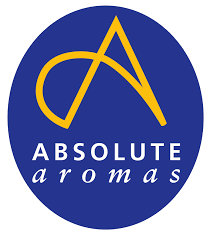
The beginnings of Aromatherapy date back to around 3500 years BC, when the ancient Egyptians pioneered of the use of aromatic plants and began to invent the first processes of distillation. Not only did they use Essential Oils from plants and herbs in incense, medicine, and massage, but also in their rituals of embalming bodies.
Since those days, Essential Oils and Aromatherapy have crept into the modern world in a multitude of different ways and their use is rising dramatically. Aromatherapy is a practice used to promote better psychological health and physical well-being. Essential Oils have also become a popular ingredient in many natural skincare and cosmetics brands, with trends moving away from using synthetic chemicals and ingredients.
What is an Essential Oil and how are they used?
Essential oils, which are obtained through mechanical pressing or distillation, are concentrated plant extracts that retain the natural scent of their source. There are many ways in which Essential Oils can be extracted, such as Steam or Water Distillation, CO2 Extraction, Maceration, Cold Pressing, and Water Distillation. The oil can be extracted from parts of certain plants like leaves, seeds, bark, roots, and rinds of fruits; it’s ‘essential’ in the sense that it contains the essence of the plant’s fragrance—the characteristic fragrance of the plant from which it has come from.
Essential Oils are used in so may ways, primarily mixed with a carrier oil or base product if applied to skin. Each Essential Oil has its own benefits, and they can also be blended to create varying interesting scents to use in massage, diffusion or in body-care products. Aromatherapy works by stimulating olfactory receptors that in turn stimulate the part of the brain that is linked to the regulation of emotions.
How to Use Essential Oils and Aromatherapy with Dementia Patients
A great way to introduce someone to Aromatherapy to a patient or family member is to pop a drop or two of essential oil on a tissue and give it to the person to see how they react to the smell, before embarking on any further Aromatherapy. If the person finds the scent unpleasant, the experience will not be a positive one, so take some time to find scents or blends that they like before starting any treatment or therapy.
Essential oils enter the body primarily in two ways—applied to the skin or inhaled. Within each of these, there are many kinds of application methods. For example, you can apply Essential Oils topically using compresses, sprays, baths, or massaging them into the skin, always diluted as some of these oils can be quite potent. (Always dilute the oils according to their instructions). Inhalation is the fastest method, and in many cases the easiest and most effective. It also means that it can be administered to the person without touching them, which some patients may not welcome. As the molecules of Essential Oil are carried through the nose, a message is sent to the central nervous system; the core of our moods and emotions. If inhaling an Essential Oil, you can use a diffuser, breathe in a few drops on a handkerchief or use a nasal inhaler or oil burner. It’s a great idea to pop a diffuser in a patient’s room with just a couple of drops of Essential Oil initially to gently introduce them to the scent.
Choosing Oils
If using Essential Oils with a family member, loved one or patient, it’s important to get to know them first if you don’t already. Do they have a love of a certain scent such as freshly picked Roses? Have they always favoured certain scents in the past when choosing products like bubble baths and laundry detergents? Maybe you know they love Lavender and always have Lavender pouches in their linen drawers… Or they may have adored Christmas in the past, so spicey warm scents like Cinnamon, Sweet Orange and Clove may appeal to them. It’s important to avoid scents that they dislike too, so to start with, gentle scents are recommended, like Chamomile, Rose and Lavender. This information is key as the Essential Oils you choose can stimulate memories, or feelings of happiness and pleasure. We all know how certain scents will have connotations, from the homely sweetness of a baking cake to the fresh saltiness of sea air.
Complementary therapies, including Aromatherapy are often attractive to patients, practitioners and families as they can be administered by non-medical professionals such as family members and healthcare assistants. They are therefore often less physically or emotionally invasive and don’t require specifically trained people or medical facilities to use them. For example, pillow spays containing Lavender Essential Oil can simply be sprayed on bed linen prior to sleep to aid a restful night, or oil can be added to bathwater in the evening to help sufferers relax can therefore improve the overall quality of their life.
Some of our Favourite Essential Oils and their Characteristics
Rosemary: Rosemary can support performance of memory.
Peppermint: A known energy booster, Peppermint invigorates the mind, can promote concentration, and boost focus.
Lemon Balm: With its grassy, sweet lemony scent, Lemon Balm is thought to boost cognition and elevate mood.
Lavender: Lavender can have calming effects and potentially soothe aggression and agitation. It can also help build healthy sleep routines to aid physical and mental wellbeing.
Some other aromatherapy Essential Oils we recommend for memory and focus include Spearmint, Patchouli, Sandalwood, Bergamot, Clary Sage, Basil, Vetiver, Sweet Orange and Lemon.
Over recent years, many independent studies have shown promising results that the practice of Aromatherapy can alleviate many symptoms of Dementia for patients. There is further reading and information available on Dementia UK’s website, although there clearly needs to be far more research into the benefits of these alternative therapies so they can potentially be used by a much wider audience.




